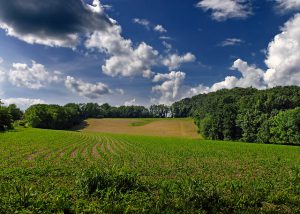Wisconsin organic farmers integrate agroecosystem practices onto farms
 Photo credit: Nicholas A. Tonelli
Photo credit: Nicholas A. Tonelli
A new study published in the journal Sustainability finds that on-farm practices implemented by organic farmers are in-line with agroecological principals intended to benefit the environment by promoting nutrient cycling, conservation of soil, water and biodiversity, and building soil health. Although the National Organic Program regulations support many of the same principals as agroecology, it has been unclear to what extent organic farmers are implementing and expanding agroecological practices. Of particular concern is that as organic farms grow in size, it is difficult to scale up agroecological practices. As a result, farming practices on large farms could start to mirror those of the conventional farm, a phenomenon known as “conventionalization.” Practices of concern include cultivating a single crop at a time (known as monocropping) and simply substituting organic-allowed pesticides instead of using whole system approaches to farm management. To determine the extent to which organic vegetable farmers in Wisconsin are integrating agroecological approaches, researchers from the University of Wisconsin surveyed vegetable farmers in Wisconsin on their cover cropping practices as part of a preliminary investigation. The study found “varying degrees of complexity and diversity in cover cropping practices, potentially illustrating the desire of organic farmers to promote a high degree of agroecosystem services.” Interestingly, they did not find that farmers from larger or more profitable farms were no less likely to integrate cover crop practices into their management strategies, suggesting that ‘conventionalization’ is not common on organic vegetable farms in Wisconsin.



